Magical and empowering stories from the fringes of the largest archipelago.
Ayo Mandiri Foundation
“When even the physically fit and mentally sound finds it difficult to land a job these days it is better to write off the prospects of the handicapped,” says Kasim Mambut, owner of Ayo Mandiri Massage Centre. Then this is exactly what Kasim refuses to do – write them off. His centre in Labuan Bajo in Flores trains the moderate to the extremely challenged people to be masseurs. “The only condition is that their hands should be normal.” So far Ayo Mandiri has trained blind youth to the wheelchair-bound to be masseurs. “Our reflexologists are a big hit with the hotels and we have a very loyal clientele. Ayo Mandiri does brisk business and none of it comes from sympathy,” Kasim says with notable pride.
Martinus, Kasim’s assistant manager sitting next to him, smiles broadly. “See, Martinus doesn’t smile generally but he is very happy for the season has been very good.” Martinus guffaws now. The partially blind Martinus is also the chief trainer at Ayo Mandiri. “Our training is very thorough and intense. Upon successful completion the students are issued certificates too,” Martinus says. Those who complete the course are first placed on probation and their techniques checked for a couple of months, if found wanting they are called back to the centre to refresh. This thoroughness in approach has paid off handsomely: Ayo Mandiri pass outs have so far found work not just with local hospitality properties but in tourist capitals like Bali and Jakarta too.
Ratu Niang
The Balinese dances were on at the resort’s amphitheatre when a slight drizzle began, steadily gathering force. Watched by many in serried chairs and sprawled on lawns with upturned cameras, the management began to fret and pace. The rain had to be stopped. Well. Frowning, gravid glances were exchanged. One of the elder members of the local staff quickly ducked into a corner of the garden where the rock-cut Ratu Niang, an ancestral motif held as the genius loci, stood. He took out a kretek, clove cigarette, from his pocket and instructed a younger chap to bring a glass of coffee.
The cigarette he lit and placed in the mouth of Ratu Niang and the coffee in front. Mumbling some chants he then girded the statue with incense sticks. I struggled to mask my smirk with a curious smile but he just nodded and stood a little away, gazing nowhere. The weather remained moody and the clouds pregnant but the rain trickled out within minutes. It was too much to believe for my adamantly rational brain; I was happy all the Bintangs had somewhat freed me from trying to figure the obscure. Was it Ratu Niang? The old chappie just continued nodding at my questioning looks and smiled. I suspected he was trying hard to mask a triumphal gaze. The dances went on now interrupted only by applause.
But none of it for Ratu Niang.
Rainbow Reading Gardens
Taman Bacaan Pelangi (Rainbow Reading Gardens) was founded in 2009 in Flores to open up a whole new world to the children of the under developed regions of eastern Indonesia. This was through firing up their imaginations by giving them access to story and picture books and sometimes even whole libraries. What was started by conservationist and book blogger Nila Tanzil with just 200 books, today has grown to nearly 40 libraries across 14 islands. Here is Monica, a project coordinator in Labuan Bajo, Flores, with the kids of a local school where the Reading Garden is located. An ex journalist with a television channel, Monica quit due to the ‘overt commercialisation of journalism and the consequential compromise in reportage’ and underwent training in basic library management before joining the NGO. “Yes, there is the threat of computers and the internet but as long as the eastern regions are deprived of electricity, reading will remain the main source of entertainment,” says Monica. “Education is a happy bonus.”
Regan
Caught up in taking things around us we invariably miss those taking us in. I didn’t see Regan despite his piercing, easy charms and would have walked away had curiosity not gotten the better of me. Trying to find where all the men and women in ceremonial finery at the Monkey Forest in Ubud were headed to, I sat next to Regan and asked his name.
“Regan,” he said.
“Boy, you are famous,” I told him and laughed. Regan just smiled. I was sure he didn’t get the joke. The tour guide came along and informed me that the people were all decked up for a wedding; there was a very revered temple inside the forest where they were all making their offerings. I stood up to leave and found Regan still peering at me, amused.
“There was an American president, you see…” I said brimming with condescension, as if talking to Rainman.
“Yes sir, I know,” Regan cut in, smiling, “I know Ronald Reagan.”
I sat back down, kind of impressed by not just his general knowledge but his effortless English too.
“So what do you do, Regan?” I asked.
“Sir, I make penjors,” replied the one-handed Regan. Penjors are elaborate designs woven from palm leaves, indispensable for all Indonesian ceremonies. It is a skill that requires both hands in a flurry.
I sat there lump-struck and humbled, fumbling for words.
Almost a first.
Ikat works
In the Flores village of Melo we were all welcomed by the clan chief with a shawl draped around us. The shawl featured lovely ikat work handcrafted by the women of the village. Ikat is an Indonesian loanword that means any of the thread, cord or knot that goes into the weaving as well as the finished fabric. It is a patterning technique that requires exemplary skill and patience, the latter trait making it an exclusive women’s fiefdom.
“As you can see the patterns are stunning and it requires great dexterity to make one,” said Georgui Arianto, a young member of the Manggarai tribe, traditional inhabitants of the village. “But not everyone appreciates the effort and we are struggling to find takers.” It is the buyback arrangement from the government that primarily keeps the craft from dying out. “Tourist sales are negligible.” And interest non-existing, I looked around.
“Probably more contemporary designs can fire up demand?” I asked.
“The designs are primarily traditional,” he said. “Though many do experiment with designs these days.”
Our discussion veered to a uniform craze prevalent in Indonesia. Apparently ministers, civil servants and village heads were required to wear uniforms while some government departments allowed wearing batik shirts on Fridays. Some even mandated the wearing of local fabric on particular days of the week. Georgui’s contention was to do away with these predominantly dull uniforms and instead introduce traditional wear on all days of the week.
“That way ikat and batik will find not just more takers but the civic departments will also get a much-needed makeover.”
Let the rumbles begin.
Ibu Robin / Bumi Sehat
When Windy said something I knew better by now than to give a cursory ear. Some of my most memorable and meaningful interactions in Indonesia were because I had unquestioningly subjected myself to the flurry of suggestions of this writer and ‘life traveller.’ We were ojekking around Ubud when she said I had to meet Ibu Robin.
“You are going to love her,” Windy proclaimed. I didn’t doubt it even if I was hearing the name for the first time.
“What does she do?”
Ibu or ‘Mother’ Robin is the founder of the Bumi Sehat Foundation, a community health and childbirth clinic in Bali and Aceh. Among the sensational new developments she brought to the local birthing table was burning the umbilical cord instead of cutting it which could cause tetanus – a distinct possibility in disaster and backward zones. (The centre in Aceh was opened after the calamitous tsunami on Boxing Day, 2004.) Besides taking care of the patients at her clinic and training new midwives – qualified ones are a premium in Indonesia – Ibu Robin is a committed activist fighting to restore the rights of parents who had to put up their babies for adoption as they didn’t have the money to pay the labour bill. She is also an advocate of water birthing and her popularity has led to many celebrities check into the humble facilities at Bumi Sehat and leave generous donations. All the money goes into facilitating healthy and happy childbirths of the 80 per cent of those who come to Bumi Sehat who can’t afford any payment.
We walked into her clinic in Bali. A soon-to-be father stood outside a room curtained off from the veranda, anxiously running his fingers through his own golden curly hair. Probably a surfer boy, looking a little clucked at the approaching choppy. I felt a strange kind of excitement, a golden-contoured one, one that smelts beads of warmth right into the heart. The way you feel when you are led into the presence of a truly exalted one, benign by deeds. Where you don’t have to be anyone else.
Ibu Robin wasn’t in – she had left an hour ago as she was going to the States on some fundraising work.
“You would’ve loved her,” Windy said again.
“Oh I do,” I replied.
And I meant it – not because Windy said it.



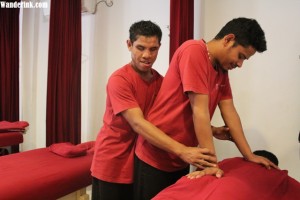


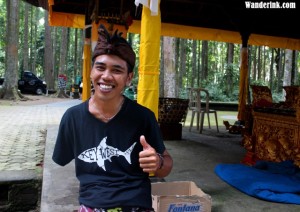
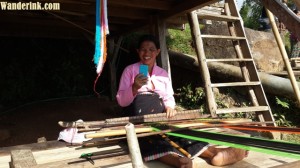
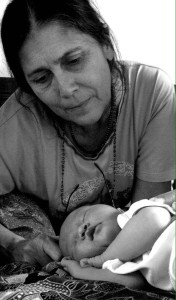

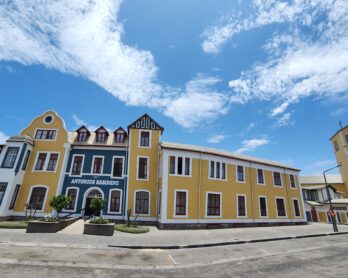

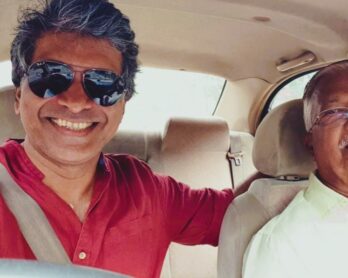



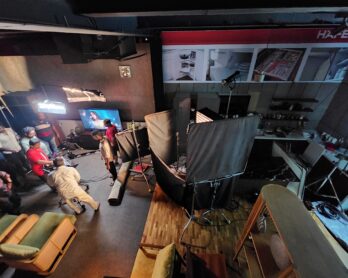

Every one of them ever so heartwarming too.
Innit? Thank you!